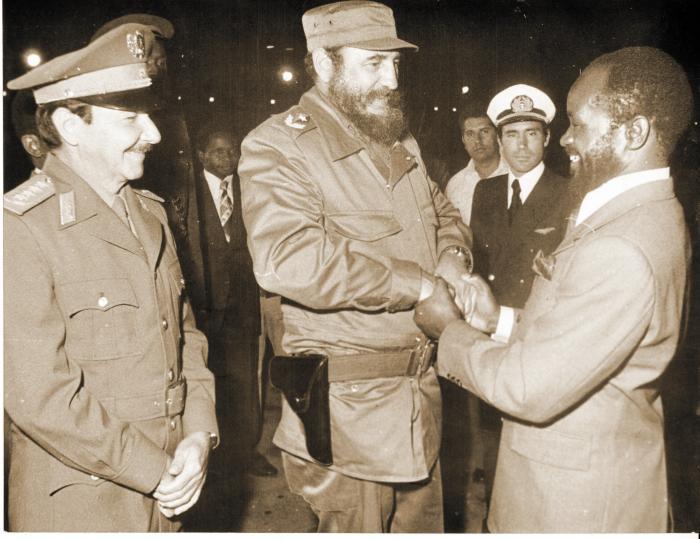
For five decades Cuba and Mozambique have forged a friendship based on mutual respect and collaboration, which has led to shortening the distance between their peoples and creating stable ties between the two governments.
"There are many things in common between Mozambique and Cuba"; in both countries "the road to independence and the Revolution was long and hard". This is how Commander-in-Chief Fidel Castro Ruz defined the historical link between these two nations, on October 11, 1977, in Santiago de Cuba, on the occasion of the first visit to the island of Commander Samora Machel, leader of the Mozambique Liberation Front (Frelimo).
Both countries -he stressed at another time- "achieved their liberation through the path of sacrifice, of struggle, of abundant blood shed and heroism. We, fighting in the last century against the colonial troops, fighting later against imperialism, fighting against corrupt governments and their mercenary forces at the service of that imperialism. They, fighting for a long time against colonialism".
After years of tireless fighting, Mozambique, led by Frelimo, proclaimed its independence on June 25, 1975. Exactly two months and two days later, on August 27 of that year, it established diplomatic relations with the island. From that moment on, a path of cooperation began, especially in areas such as medicine, economy and education.
The largest of the Antilles sent doctors, nurses, sugar, livestock, agriculture, fishing, construction, transportation and other sectors technicians to Cuba. In October 1977, some 300 Cubans were collaborating there and, gradually, the number increased.
As part of the cooperation in the education sector, scholarships were granted for young Mozambicans to study in Cuba. In each of the 120 districts of the ten provinces, ten students were selected, totaling 1,200 who made up the first group sent to the island in 1977.
As for medical collaboration, it cannot be left unmentioned that brigades of the Henry Reeve International Contingent have supported the sister land, whenever they have required Cuba's solidarity assistance. In March 2019, workers from the Ministry of Public Health went to Mozambique to provide their services to the population of the areas affected by cyclone Idai.
In 2021, during the covid-19 pandemic, 45 doctors and nurses joined the nearly 300 Health collaborators, who had been in that African nation since March 2020.
For its part, Cuba has always been grateful for Mozambique's unconditional support in the fight against the blockade; the sister country has maintained its firm stance against this criminal policy, whether at the United Nations or in the African Union.
After 50 years, the ties immortalized by Fidel and Samora Machel -called Father of the Independence of Mozambique- are still intact and growing stronger every day.








